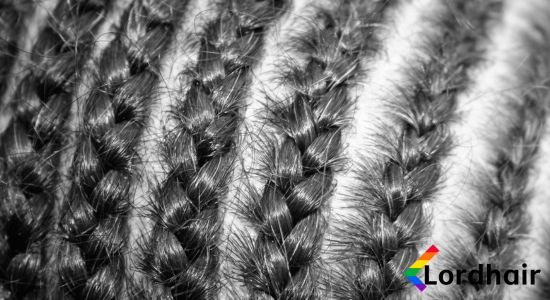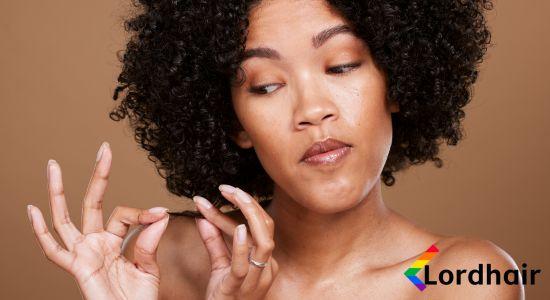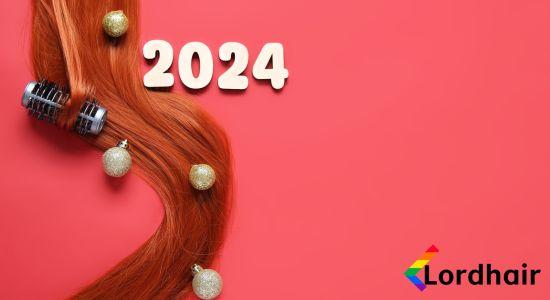The Historical Journey of Black Hair
- Written by Ray Fernandez
- | Published Oct 4, 2023
- |
- 3 min read
 Listen to the full text
Listen to the full text

Welcome to Celebrating Black Hair: Exploring Cultural Significance and Embracing Diversity!
Celebrating Identity and Resilience
In honour of Black History Month, we embark on a journey to delve deep into the beauty and importance of black history figures within black history and its people. At Lordhair we aim to celebrate and discuss the historical, cultural, and personal aspects of black hair, recognising its diversity and significance in shaping individual identities and community bonds.
Hair has been an essential aspect of human identity and expression for centuries, and this is particularly true for black hair. The historical journey of black hair is one of resilience, resistance, and self-celebration. From ancient Africa to the present day, black hair has evolved as a symbol of cultural heritage, a political statement, and a source of artistic inspiration, leaving an indelible mark on the world.
The roots of black hair can be traced back to ancient Africa, where intricate hairstyles served as a reflection of one's tribe, status, age, and personal beliefs. Braids, twists, and elaborate patterns were not only a means of self-expression but also a way to honour ancestors and protect hair from the elements. Each style carried its own significance, allowing individuals to showcase their cultural heritage with pride.
Deep Rooted Traditions of Black Hair
Black American history facts take us to the Transatlantic Slave Trade brought a tragic disruption to the deep-rooted traditions of black hair. Stripped of their cultural identity and forced to conform to European standards, enslaved Africans often had their hair shaved or covered, erasing their sense of self-expression. However, even in the face of such oppression, black people found ways to resist and defy these attempts at dehumanisation.
During the era of slavery, cornrows served as a powerful form of resistance. Enslaved individuals would weave maps, messages, and symbols into their hair as a secret mode of communication, ensuring that important information could be shared discreetly. It was a silent act of defiance against the institution that sought to strip them of their humanity.

As time progressed, the Civil Rights Movement and subsequent Black Power Movement in the United States became a turning point for the black hair revolution. Black men and women took great pride in embracing their natural hair, famously sporting afros and braided styles as symbols of black power, pride, and unity. This political statement challenged societal norms and empowered black individuals to reclaim their identity.
The 20th century witnessed a transformation in black hair culture, with the rise of influential figures like Madam C.J. Walker, who became the first female self-made millionaire in America by developing hair care products specifically for black women. Her success not only provided economic independence but also helped to dismantle the stereotypes surrounding black hair by highlighting its beauty and potential.
You may also be interested in:
- A brief history of black hair shops
- What is the association between religion and hair?
- Why do gay men and black women understand me better?
Strands of Hair Are Stronger Than We Think
Today, the celebration of black hair continues to flourish as individuals proudly wear their natural curls, braids, locks, Afros and even toupee (also known as men’s human hair wigs, hair systems, hair units, and men’s hairpieces). The emergence of social media platforms and the natural hair movement have provided a space for black people to share their unique hair journeys, hair care tips, and personal stories. It has fostered a sense of community and empowerment, inspiring and encouraging others to embrace their own natural hair.
Bald black men don't need to despair thanks to Afro hair system!
Moreover, black hair has become an integral part of mainstream culture, with diverse representations seen in fashion shows, advertising campaigns, and popular media. This increased visibility has sparked conversations surrounding the importance of accepting and appreciating the diversity of black hair textures and styles.
The historical journey of black hair is a testament to the strength, resilience, and creativity of black people. It highlights their ongoing struggle for identity, freedom, and self-expression. From ancient Africa to the modern day, black hair has evolved beyond being just a physical attribute; it has become a symbol of cultural pride, a statement of defiance, and a powerful marker of black identity.
Let's Celebrate Black Hair
As we celebrate the historical journey of black hair, let us remember the deep significance it holds and honour the generations of black individuals who fought to uplift its beauty and reclaim their sense of self. May our legacy continue to inspire us to embrace and celebrate our own unique hair journeys.
Ray is a guest contributor to our blogs with an extensive background in PR. Ray loves to discuss his own hair system journey by offering insights into wearing and styling a toupee wig as well as providing observations on the role of hair in sexual and gender identity from an LGBTQ+ perspective. Be sure to check out more of Ray’s Diversity content.



